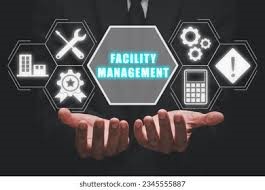How A Facility Manager Can Maximize The Value Of Your Real Estate


In the Nigerian Real Estate market, especially in cities like Abuja, property value isn’t just determined by location or market trends. Effective management is an important factor that can make or break the worth of real estate assets.
Property owners and investors often face challenges in making sure their properties stay in good condition, attract quality tenants, and consistently generate returns. This is where a professional facility manager comes into play.
Facility Management in Nigeria involves more than just handling maintenance tasks. It’s about strategic planning, proactive upkeep, and creating an environment that maximizes property value over time.
In this article, we’ll explore how a facility manager can significantly boost the value of your real estate portfolio in Nigeria.

1. Proactive Maintenance and Repairs
The condition of your property directly impacts its value. A key role of a facility manager is to make sure that your property remains in pristine condition. Regular inspections, preventative maintenance, and timely repairs prevent small issues from escalating into major problems.
For instance, consistent maintenance of electrical systems, plumbing, and other infrastructure helps avoid sudden breakdowns that could lead to expensive repairs. Whether it’s servicing the generator regularly or ensuring the plumbing works efficiently, proactive management is essential.
This level of care do not only preserve property value but also ensures tenants are satisfied, which lower vacancy rates. Well-maintained properties attract premium rents, especially in high-demand cities like Abuja, thereby enhancing overall returns.
2. Enhanced Tenant Experience and Retention
High-quality tenants seek properties that are well-managed, secure, and offer value for their rent. Facility managers in Nigeria play a vital role in ensuring tenants have a seamless experience. This involves maintaining clean environments, ensuring safety, and promptly addressing any complaints.
For example, in a commercial property, a facility manager ensures that the premises are clean, secure, and well-lit, while also managing relationships with vendors providing essential services like security and waste disposal. A happy tenant is more likely to renew their lease, reducing the frequent turnover costs associated with finding new tenants.
3. Cost-Efficient Operations
Managing operational costs is important in maximizing real estate returns, especially in Nigeria where inflation and fluctuating exchange rates can affect property expenses. An experienced facility manager finds ways to cut costs while maintaining service quality. This could involve negotiating better deals with service providers, finding energy-efficient solutions, and optimizing utility usage.
In Nigeria, where electricity costs are high and power supply is inconsistent, facility managers often implement energy-saving solutions like solar installations or energy-efficient appliances. This do not only reduces costs but also appeals to tenants who are conscious of utility expenses.
4. Regulatory Compliance and Risk Management
Real estate properties are subject to various regulations, from environmental laws to safety standards. Non-compliance can lead to hefty fines, legal issues, and even a decline in property value. A facility manager ensures that your property adheres to local regulations and standards, reducing the risk of legal complications.
For instance, in Abuja, properties must comply with regulations set by the Abuja Metropolitan Management Council (AMMC) and other relevant agencies. A facility manager stays updated on these regulations, conducts regular compliance checks, and maintains proper documentation to avoid any legal setbacks.
Moreover, facility managers identify potential hazards, such as structural weaknesses or faulty electrical installations, and address them proactively. This reduces the risk of accidents and ensures that your property remains a safe and desirable place for tenants.
5. Optimizing Property Value Through Strategic Enhancements
A facility manager also plays a strategic role in making improvements that enhance property value. For instance, they may recommend renovations, landscaping, or other upgrades that can boost the aesthetic appeal and functionality of your property. In a competitive market like Abuja, properties that stand out with modern amenities and well-maintained environments are more likely to attract higher rental rates and better tenants.
Whether you own residential, commercial, or mixed-use properties, the value-added by a facility manager in Nigeria is undeniable.
Having a professional facility manager could be the difference between average returns and a thriving, high-value property portfolio.




